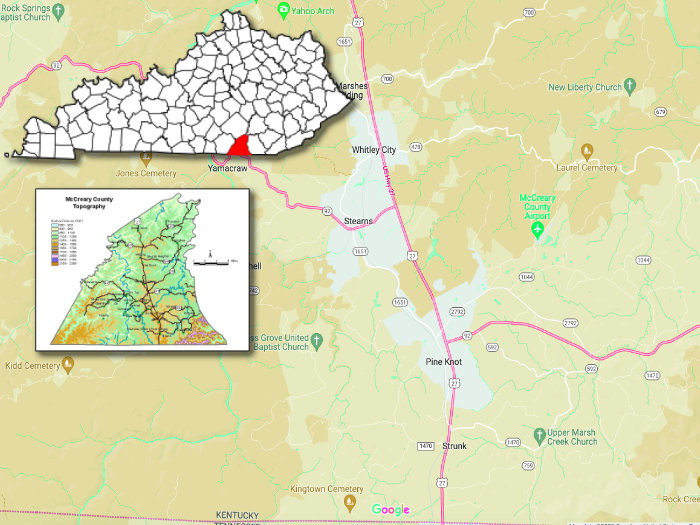This post was recently shared with me on Facebook. It was written by a man named Harold Strunk and originally appeared on the McCreary County, Kentucky Group on Facebook.
I was touched after reading this in so many ways. It speaks to a different time, in the not-so-distant past, when the world was slower and, in many ways, harder.
But more than anything, it spoke from this gentleman’s heart. A remembrance. Not only of his life but of our world, in a way that is honest and true.
I contacted Mr. Strunk and asked his permission to post it here in my blog. So, without any further ado. This.
_____________________
The things we didn’t have in Worley
By Harold Strunk
My family had moved from Huntsville to Fidelity to mine coal for Mister Stearns. I was born in Fidelity in 1933, but after my Dad was badly injured in the mine, we had to leave. It was in the Great Depression. There was no Welfare, no Social Security, no Disability, no Unions, no Help. So, we moved to NYC where Dad found work. So did Mom. But they couldn’t leave me alone when school was out, so we would get on the train and make our way to the K&T Railroad in Stearns and deliver me to my Grandparents in Worley for the Summer.
My grandparents were Joseph H. Strunk and Ellana Petrie and their kids were Joseph, Anna, Louise, Barbara Sue, Tommy, and Jimmy. I fit right in the middle.
I was thinking last night of what we didn’t have. No hospital, no pharmacy, no optometrist, no dentist, no restaurants, no KFC or Walmart, no veterinarian, no gas station but no one owned a car, no indoor plumbing, no air conditioning or heating, no high school, no church, no swimming pool, and no car road. Doc Floyd covered McCreary County on a two-man section car that ran on the rails. I was born by a granny midwife, and he got there two days later.
What we did have was a railroad track, a 1-8 grade school, two pumps for water, free coal dumped beside the track, and a Company store. Miners were paid half in Stearns scrip which was only good in company stores. What the store had was large sacks of pintos, flour, sugar, cornmeal, and chicken feed. Sacks had patterns and the women used them to make dresses and drapes. The store also had carbide and lamps, overalls, shirts, hats, shoes, long johns, work sox, lunch buckets, cans of lard, vanilla ice cream, Moon Pies, and RC Colas. Sometimes even a Nehi grape soda. Oh yes, we had Bayer aspirin, iodine, mercurochrome, unguentine salve, and Vicks vapor rub.
Grandma Ellana would get up every morning to make biscuits for the family and to pack Grandpa’s lunch bucket. Any flour left on the breadboard was scraped back into the bin. Nothing was ever wasted. And the Sears Roebuck catalog hung on a nail in the outhouse, along with a bucket of corn cobs.
Grandpa had access to a little bit of land below the K&T’s water tank at Watertank Holler. We planted corn with two bean seeds, carrots, cucumbers, and squash. We grew chickens for meat and eggs. Blackberries grew wild in the hills, and we picked them for pies and jam. The penalty was a dose of chiggers and ticks. Even if our cuffs were wrapped with strips of cloth soaked in coal oil.
We had electricity and a bulb hung on a cord in one room where we ate. On Saturday nights we could get WSM Nashville and the Grand Ole Opry on the little radio. We gathered around and the girls would copy the words so they could sing the songs.
The girls would try and sneak lipstick to look pretty, but when Grandpa would see then, he would say, “You look like a fox’s hind end in pokeberry time.” Well, that hurt.
The pump down below our house was sulfur water that smelled, and good only for washing clothes and Saturday baths in a Number 10 washtub and the lye soap that Grandma made from pot ashes. We kids each evening would take two buckets and walk a mile on the railroad tracks to the good water pump near the company store. That was for cooking and drinking.
No one I ever knew had allergies. Only to poison ivy. We could eat anything.
Joe, Jr. was the older brother I never had. We fished the river using trot lines for catfish, and we trapped muskrats for their hides. In winter when the hickory nuts came, we took our .22s and hunted the big fat squirrels. Grandma would make squirrel and dumplings.
All of them are long gone now, and I will be ninety in June. I miss them all, but I know where to find them in the next life. I am counting on John 14:2.
Harold K. Strunk
____________
The Things We Didn’t Have In Worley by Harold Strunk
